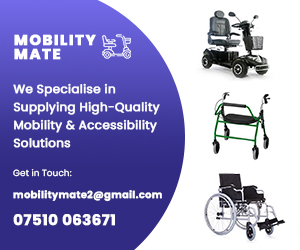07/03/2006
British woman loses legal battle over embryos
A British woman has lost her legal battle to use her frozen embryos to have a baby at the European Court of Human Rights.
Natalie Evans, 35, from Wiltshire, had started IVF treatment with her then partner, Howard Johnson, in 2001, after treatment for ovarian cancer left her infertile.
However, when the couple split up in 2002, Mr Johnson withdrew his consent for Ms Evans to use the six embryos, which had been fertilised with his sperm, in order to have a baby.
Ms Evans took her case to the Strasbourg after hearings in both the British High Court and Court of Appeal failed.
She had argued that the frozen embryos provided her only chance to have a natural child of her own and the refusal of permission to use the embryos was a breach of her human rights.
Ms Evans had also argued that Mr Johnson had already consented to the creation, storage and use of the embryos and should not be able to change his mind.
However, the panel of seven judges at the European Court of Human Rights said: "The Court, like the national courts, had great sympathy for the plight of the applicant who, if implantation did not take place, would be deprived of the ability to give birth to her own child."
However, the judgement said that the right to family life - enshrined in the European Convention of Human Rights - could not override Mr Johnson's withdrawal of consent.
The judges also said that the embryos did not have an independent right to life.
Current British law requires the consent of both parents for the embryos to be used.
Commenting on the decision, Dr Michael Wilks, Chairman of the BMA's Medical Ethics Committee said: "This has clearly been a very difficult case for everyone involved, and we have much sympathy for Natallie Evans. However, we believe it is crucial that both partners have given their permission to become parents before frozen embryos are used.
“The principle of consent is hugely important and we welcome the fact that it has been upheld.”
Ms Evans now has one final legal chance to make an appeal to the Grand Chamber in Europe.
(KMcA/GB)
Natalie Evans, 35, from Wiltshire, had started IVF treatment with her then partner, Howard Johnson, in 2001, after treatment for ovarian cancer left her infertile.
However, when the couple split up in 2002, Mr Johnson withdrew his consent for Ms Evans to use the six embryos, which had been fertilised with his sperm, in order to have a baby.
Ms Evans took her case to the Strasbourg after hearings in both the British High Court and Court of Appeal failed.
She had argued that the frozen embryos provided her only chance to have a natural child of her own and the refusal of permission to use the embryos was a breach of her human rights.
Ms Evans had also argued that Mr Johnson had already consented to the creation, storage and use of the embryos and should not be able to change his mind.
However, the panel of seven judges at the European Court of Human Rights said: "The Court, like the national courts, had great sympathy for the plight of the applicant who, if implantation did not take place, would be deprived of the ability to give birth to her own child."
However, the judgement said that the right to family life - enshrined in the European Convention of Human Rights - could not override Mr Johnson's withdrawal of consent.
The judges also said that the embryos did not have an independent right to life.
Current British law requires the consent of both parents for the embryos to be used.
Commenting on the decision, Dr Michael Wilks, Chairman of the BMA's Medical Ethics Committee said: "This has clearly been a very difficult case for everyone involved, and we have much sympathy for Natallie Evans. However, we believe it is crucial that both partners have given their permission to become parents before frozen embryos are used.
“The principle of consent is hugely important and we welcome the fact that it has been upheld.”
Ms Evans now has one final legal chance to make an appeal to the Grand Chamber in Europe.
(KMcA/GB)
Related UK National News Stories
Click here for the latest headlines.
14 February 2005
Woman in frozen embryo row takes case to Europe
A British woman, left infertile after cancer treatment, is to take her case to the European Court of Human Rights, in order to win the right to use frozen embryos created from her eggs. Natalie Evans was diagnosed with ovarian cancer and decided to undergo IVF treatment with her fiancé, Howard Johnson in 2001.
Woman in frozen embryo row takes case to Europe
A British woman, left infertile after cancer treatment, is to take her case to the European Court of Human Rights, in order to win the right to use frozen embryos created from her eggs. Natalie Evans was diagnosed with ovarian cancer and decided to undergo IVF treatment with her fiancé, Howard Johnson in 2001.
24 March 2005
Ethiopian army branded ‘murderers and rapists’
The Ethiopian military has committed widespread murder, rape and torture against the Anuak population since December 2003, Human Rights Watch (HRW) said in a report released today.
Ethiopian army branded ‘murderers and rapists’
The Ethiopian military has committed widespread murder, rape and torture against the Anuak population since December 2003, Human Rights Watch (HRW) said in a report released today.
01 October 2003
Women lose right to save frozen embryos
Two women have lost a High Court bid to gain control over their frozen embryos without the consent of their former partners. Natallie Evans, 31, and Lorraine Hadley, 38, had been seeking the High Court to rule on whether they could complete an in vitro fertilization programme that had been commenced with former partners.
Women lose right to save frozen embryos
Two women have lost a High Court bid to gain control over their frozen embryos without the consent of their former partners. Natallie Evans, 31, and Lorraine Hadley, 38, had been seeking the High Court to rule on whether they could complete an in vitro fertilization programme that had been commenced with former partners.
04 January 2005
Pinochet declared fit to stand trial
Chile's Supreme Court has declared the country's former President, Augusto Pinochet, fit to stand trial on murder and kidnapping charges. General Pinochet, who was arrested in the UK in 1998, has never stood trial for human rights violations during his rule in Chile between 1973 and 1990, despite several high profile cases against him.
Pinochet declared fit to stand trial
Chile's Supreme Court has declared the country's former President, Augusto Pinochet, fit to stand trial on murder and kidnapping charges. General Pinochet, who was arrested in the UK in 1998, has never stood trial for human rights violations during his rule in Chile between 1973 and 1990, despite several high profile cases against him.
12 August 2004
Groundbreaking research into human cloning gets go-ahead
The first licence to create human embryonic stem cells for cloning has been awarded to a research team based in Newcastle. Under the terms of the one-year licence granted to Newcastle Centre for Life, stem cells created using a technique called therapeutic cloning can only be used for research purposes only.
Groundbreaking research into human cloning gets go-ahead
The first licence to create human embryonic stem cells for cloning has been awarded to a research team based in Newcastle. Under the terms of the one-year licence granted to Newcastle Centre for Life, stem cells created using a technique called therapeutic cloning can only be used for research purposes only.
-




 Northern Ireland WeatherToday:A sunny but frosty start for many. However cloud increases by midday with a few showers reaching the north coast, these mostly light but spreading inland this afternoon. Chilly. Maximum temperature 8 °C.Tonight:A rather cloudy evening with scattered showers. Becoming drier through the night with some good clear spells developing and a patchy frost away from coasts. Minimum temperature 0 °C.
Northern Ireland WeatherToday:A sunny but frosty start for many. However cloud increases by midday with a few showers reaching the north coast, these mostly light but spreading inland this afternoon. Chilly. Maximum temperature 8 °C.Tonight:A rather cloudy evening with scattered showers. Becoming drier through the night with some good clear spells developing and a patchy frost away from coasts. Minimum temperature 0 °C.

